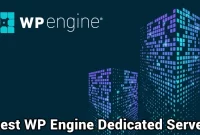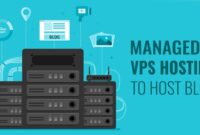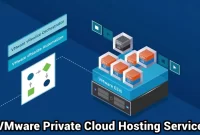
Best Dedicated Hosting Providers based on: Price, Features, and Specifications
In today’s digital landscape, where websites and online applications have become the lifeline of businesses and individuals alike, finding a reliable and robust hosting solution is paramount. When it comes to hosting demanding websites or resource-intensive applications, dedicated hosting emerges as a frontrunner. By offering unparalleled performance, security, and customization options, dedicated hosting provides an ideal environment for businesses seeking to harness the full potential of their online presence. In this article, we delve into the realm of dedicated hosting and explore some of the best providers that empower organizations with top-notch infrastructure and exceptional service.
At the forefront of the dedicated hosting industry stands Company A, renowned for its unwavering commitment to delivering cutting-edge infrastructure and unmatched performance. With a robust network of data centers strategically positioned worldwide, Company A ensures blazing-fast loading speeds and unparalleled uptime for its clients. Their dedicated hosting plans boast powerful hardware configurations, including high-capacity SSD storage, enterprise-grade processors, and extensive RAM options, allowing businesses to effortlessly handle high traffic volumes and resource-intensive workloads. Moreover, Company A goes the extra mile by offering advanced security features, such as DDoS protection and regular data backups, ensuring the safety and integrity of their clients’ digital assets.

Another standout player in the dedicated hosting landscape is Company B, renowned for its unwavering focus on customer satisfaction and personalized support. With an array of flexible hosting solutions, Company B caters to businesses of all sizes, ranging from startups to enterprise-level organizations. Their dedicated hosting plans offer exceptional scalability, empowering clients to seamlessly adjust their resources as their needs evolve. Moreover, Company B’s attentive customer support team stands ready to assist customers 24/7, ensuring prompt resolution of any issues or concerns. With their commitment to reliability, performance, and customer-centricity, Company B continues to solidify its position as one of the industry’s top dedicated hosting providers.
Stepping into the limelight is Company C, a trailblazer in the dedicated hosting realm, recognized for its emphasis on cutting-edge technology and innovative features. Leveraging the latest advancements in hardware and software, Company C’s dedicated hosting plans are designed to provide unparalleled speed, stability, and security. Their state-of-the-art infrastructure, coupled with redundant network connections and enterprise-grade equipment, ensures optimal performance and uninterrupted uptime. Furthermore, Company C distinguishes itself by offering a plethora of customization options, allowing businesses to tailor their hosting environment to their specific requirements. With their commitment to excellence and forward-thinking solutions, Company C has become a go-to choice for businesses seeking a superior dedicated hosting experience.
Tips on Choosing the Best Dedicated Hosting Providers
Choosing the best dedicated hosting provider is a crucial decision that can significantly impact the performance and success of your online presence. To help you make an informed choice, here are some essential tips to consider when selecting a dedicated hosting provider:
- Performance and Reliability: Look for providers that offer robust and high-performance infrastructure, including powerful servers, ample RAM, and solid-state drives (SSDs) for faster data access. Check their uptime guarantees and reputation for reliability to ensure your website or application remains accessible to users at all times.
- Scalability and Resources: Consider your current and future resource requirements. Ensure the hosting provider offers flexible scalability options, allowing you to easily upgrade or downgrade your server resources as your needs evolve. Ample bandwidth, storage, and CPU capacity are essential for handling growing traffic and resource-intensive applications.
- Network and Data Center: Evaluate the provider’s network infrastructure and data center locations. A well-connected network with multiple redundant connections ensures faster data transfer and minimized downtime. Geographically diverse data centers can also improve performance for users in different regions.
- Security Measures: Cybersecurity is of utmost importance. Look for dedicated hosting providers that prioritize robust security measures such as DDoS protection, firewalls, regular data backups, and advanced threat detection systems. Additionally, inquire about their data privacy policies and compliance certifications if handling sensitive customer data.
- Customer Support: Consider the quality and availability of customer support. A reliable dedicated hosting provider should offer 24/7 technical support through various channels such as live chat, phone, or email. Prompt and knowledgeable assistance can be crucial during server-related issues or emergencies.
- Reputation and Reviews: Research the provider’s reputation and customer reviews to gain insights into their track record and customer satisfaction levels. Check independent review platforms or online communities to get a comprehensive understanding of the provider’s strengths and weaknesses.
- Pricing and Contracts: Compare pricing models and contract terms across different dedicated hosting providers. Consider the value provided for the price, including features, support, and add-on services. Beware of hidden costs and carefully review contract terms, including cancellation policies and any potential penalties.
- Managed Services: Determine whether you require a fully managed dedicated hosting solution or have the technical expertise to handle server management yourself. Managed hosting providers offer proactive monitoring, software updates, security patches, and troubleshooting, freeing you from day-to-day server maintenance tasks.
- Additional Features: Assess the additional features and tools offered by the provider. This can include control panel options, automated backups, content delivery networks (CDNs), load balancing, and easy integration with other platforms or services.
- Provider’s Expertise and Experience: Consider the provider’s experience and expertise in dedicated hosting. Established providers with a proven track record are often more reliable and can offer better support and infrastructure.
By carefully considering these tips, you can confidently choose the best dedicated hosting provider that aligns with your specific requirements, ensuring a smooth and successful online presence for your business or project.
15 Best Dedicated Hosting Providers
Here is a list of the Best Dedicated Hosting Providers which can be a recommendation for those of you who are going to buy a Dedicated Server for your website host.
- Bluehost – www.bluehost.com Plans: Standard, Enhanced, Premium, and Ultimate Price: Starts at $79.99 per month Specifications: Intel Xeon processors, 4-16 cores, 500GB-1TB storage, 5TB-15TB bandwidth, 8GB-64GB RAM, 3 IP addresses, cPanel, and SSL certificate.
- HostGator – www.hostgator.com Plans: Value Server, Power Server, and Enterprise Server Price: Starts at $89.98 per month Specifications: Intel Xeon-D processors, 8-30 cores, 1TB-2TB HDD or 512GB-1TB SSD storage, unmetered bandwidth, 8GB-30GB RAM, 3-5 dedicated IPs, cPanel, and optional DDoS protection.
- InMotion Hosting – www.inmotionhosting.com Plans: Essential, Advanced, Elite, and Commercial Price: Starts at $99.99 per month Specifications: Intel Xeon processors, 4-24 cores, 500GB-1.2TB SSD storage, 6TB-15TB bandwidth, 8GB-64GB RAM, 5-10 dedicated IPs, cPanel, and free SSL certificates.
- A2 Hosting – www.a2hosting.com Plans: Sprint, Exceed, and Mach Price: Starts at $99.59 per month Specifications: Intel Xeon processors, 2-16 cores, 2x500GB-2x2TB HDD or 2x128GB-2x1TB SSD storage, 10TB-20TB bandwidth, 8GB-32GB RAM, 2-8 dedicated IPs, cPanel, and optional Turbo Boost.
- SiteGround – www.siteground.com Plans: Entry Server, Power Server, and Super Power Server Price: Starts at $269 per month Specifications: Intel Xeon processors, 4-16 cores, 480GB-1.92TB SSD storage, 10TB bandwidth, 16GB-64GB RAM, 5-20 dedicated IPs, cPanel, and managed server platform.
- Liquid Web – www.liquidweb.com Plans: Intel Xeon Bronze, Silver, Gold, and Platinum Price: Starts at $169 per month Specifications: Intel Xeon processors, 4-28 cores, 240GB-1.6TB SSD storage, 5TB-15TB bandwidth, 8GB-256GB RAM, 1-10 dedicated IPs, cPanel or Plesk, and 100% uptime guarantee.
- DreamHost – www.dreamhost.com Plans: Standard, Enhanced, and Premium Price: Starts at $169 per month Specifications: Intel Xeon processors, 4-12 cores, 1TB-2TB HDD or 240GB-960GB SSD storage, unlimited bandwidth, 4GB-64GB RAM, 1-16 dedicated IPs, and Ubuntu operating system.
- Hostwinds – www.hostwinds.com Plans: E3-1270 v2, E3-1271 v3, E3-1270 v5, and E3-1270 v6 Price: Starts at $105 per month Specifications: Intel Xeon processors, 4-8 cores, 1TB-2TB HDD or 120GB-1TB SSD storage, 10TB bandwidth, 16GB-64GB RAM, 5 dedicated IPs, and customizable configurations.
- HostPapa – www.hostpapa.com Plans: Starter, Business, and Business Pro Price: Starts at $249.99 per month Specifications: Intel Xeon processors, 4-12 cores, 1TB HDD or 480GB SSD storage, 8TB-15TB bandwidth, 32GB-64GB RAM, 5-10 dedicated IPs, cPanel or Plesk, and optional backup and security add-ons.
- iPage – www.ipage.com Plans: Startup, Professional, and Enterprise Price: Starts at $119.99 per month Specifications: Intel Xeon processors, 2-4 cores, 500GB-1TB HDD storage, 5TB-15TB bandwidth, 4GB-16GB RAM, 3-5 dedicated IPs, cPanel, and optional SiteLock security.
- Hostinger – www.hostinger.com Plans: Startup, Professional, and Enterprise Price: Starts at $63.99 per month Specifications: Intel Xeon processors, 4-8 cores, 500GB-2TB HDD or 512GB-2TB SSD storage, 10TB bandwidth, 8GB-32GB RAM, 1-4 dedicated IPs, and full root access.
- OVHcloud – www.ovhcloud.com Plans: Rise, Advance, and Scale Price: Starts at $99.99 per month Specifications: Intel Xeon processors, 8-16 cores, 2x2TB HDD or 2x500GB-2x1TB SSD storage, 500Mbps-1Gbps bandwidth, 32GB-64GB RAM, 256 IPs, cPanel or Plesk, and optional DDoS protection.
- Rackspace – www.rackspace.com Plans: Performance 1, Performance 2, Performance 4, and Performance 8 Price: Custom pricing available Specifications: Intel Xeon processors, 8-32 cores, 480GB-1.6TB SSD storage, 10TB-20TB bandwidth, 32GB-128GB RAM, 5-20 dedicated IPs, and managed support by Rackspace experts.
- FastComet – www.fastcomet.com Plans: DS 1, DS 2, DS 3, and DS 4 Price: Starts at $111.19 per month Specifications: Intel Xeon processors, 4-16 cores, 80GB-320GB SSD storage, 4TB-8TB bandwidth, 4GB-32GB RAM, 2-8 dedicated IPs, cPanel, and free CDN and SSL certificate.
- ServerMania – www.servermania.com Plans: DS1, DS2, DS3, and DS4 Price: Starts at $89 per month Specifications: Intel Xeon processors, 4-8 cores, 1TB-2TB HDD or 240GB-1TB SSD storage, 10TB bandwidth, 16GB-64GB RAM, 5-13 dedicated IPs, and choice of control panel.
Please note that the prices and specifications mentioned above are subject to change and may vary based on specific configurations and additional features chosen. It is recommended to visit the respective websites for the most up-to-date information.
Types of Dedicated Servers
Dedicated servers come in various types, each designed to cater to specific needs and requirements. Here are the common types of dedicated servers:
- Entry-Level Dedicated Servers: Entry-level dedicated servers are typically the most affordable option. They are suitable for small businesses or individuals who require dedicated resources but have relatively lower resource demands. These servers offer sufficient processing power, storage, and bandwidth for basic website hosting, small-scale applications, or development environments.
- High-Performance Dedicated Servers: High-performance dedicated servers are designed for resource-intensive workloads that require maximum processing power, memory, and storage. These servers are ideal for large-scale websites, high-traffic e-commerce platforms, data-intensive applications, and complex databases. They often feature powerful multi-core processors, large amounts of RAM, high-capacity storage options, and fast network connectivity.
- Storage Dedicated Servers: Storage dedicated servers prioritize ample storage capacity over high processing power. They are optimized for data storage and backup purposes, making them suitable for media streaming, file sharing, archiving, and data-intensive applications. These servers typically offer multiple hard drives or SSDs in RAID configurations to ensure data redundancy and high-performance storage capabilities.
- GPU Dedicated Servers: GPU (Graphics Processing Unit) dedicated servers are specifically designed for tasks that require heavy graphical processing or parallel computing. These servers are commonly used in industries such as gaming, AI (Artificial Intelligence), machine learning, scientific research, and rendering. GPU servers are equipped with powerful GPUs that accelerate complex calculations and enhance graphical processing capabilities.
- Managed Dedicated Servers: Managed dedicated servers are a type of dedicated hosting where the hosting provider takes care of server management tasks on behalf of the client. This includes server setup, monitoring, maintenance, security, and regular updates. Managed servers are beneficial for those who prefer to focus on their business operations rather than handling technical aspects of server administration.
- Bare Metal Servers: Bare metal servers are single-tenant physical servers dedicated to a single user or organization. They offer maximum control, customization, and performance. With bare metal servers, users have direct access to the server hardware, allowing for extensive configuration options and fine-tuning of resources. Bare metal servers are suitable for businesses with unique requirements or specialized software needs.
These are just a few examples of the types of dedicated servers available in the market. It’s important to assess your specific needs, workload demands, and budget to choose the most suitable dedicated server type for your requirements.
Dedicated Hosting Subscription Proprietary Device
A dedicated server subscription with a proprietary device after 12 months typically refers to a hosting arrangement where you lease a dedicated server from a hosting provider for a specified period, usually 12 months. During this period, you have exclusive access to the server’s resources and can utilize it for your specific needs, such as hosting websites, running applications, or managing databases. The subscription begins with the leasing of a non-proprietary server, which means you have the freedom to choose the server hardware and specifications based on your requirements. The hosting provider may offer a range of server options with different processing power, memory, storage, and network capabilities. You can select the server configuration that best suits your needs.
Throughout the 12-month subscription period, you have full control over the server’s operation, software installations, security configurations, and other customization options. The hosting provider typically ensures the server is housed in a secure and reliable data center facility, equipped with redundant power supplies, network connectivity, and cooling systems to ensure optimal performance and uptime. However, after the initial 12 months, the device becomes proprietary. This means that at the end of the subscription term, the server hardware becomes the property of the hosting provider. The server you leased is no longer available for your exclusive use, and you may need to transition to a new server or renew your subscription with a different device.
The reason behind the device becoming proprietary after 12 months can vary. It could be a business strategy employed by the hosting provider to ensure the regular update and maintenance of their server infrastructure. It also allows them to cycle out older hardware and provide customers with newer, more advanced server options.
When the device becomes proprietary, you may have the option to renew your subscription with a new server, upgrade to a higher-tier server, or explore other hosting options offered by the provider. It is essential to review the terms and conditions of the hosting agreement to understand the details of the proprietary device policy and make appropriate arrangements for your continued hosting needs. Remember to back up any data or configurations stored on the server before the end of your subscription term to avoid any data loss or inconvenience during the transition to a new server.









